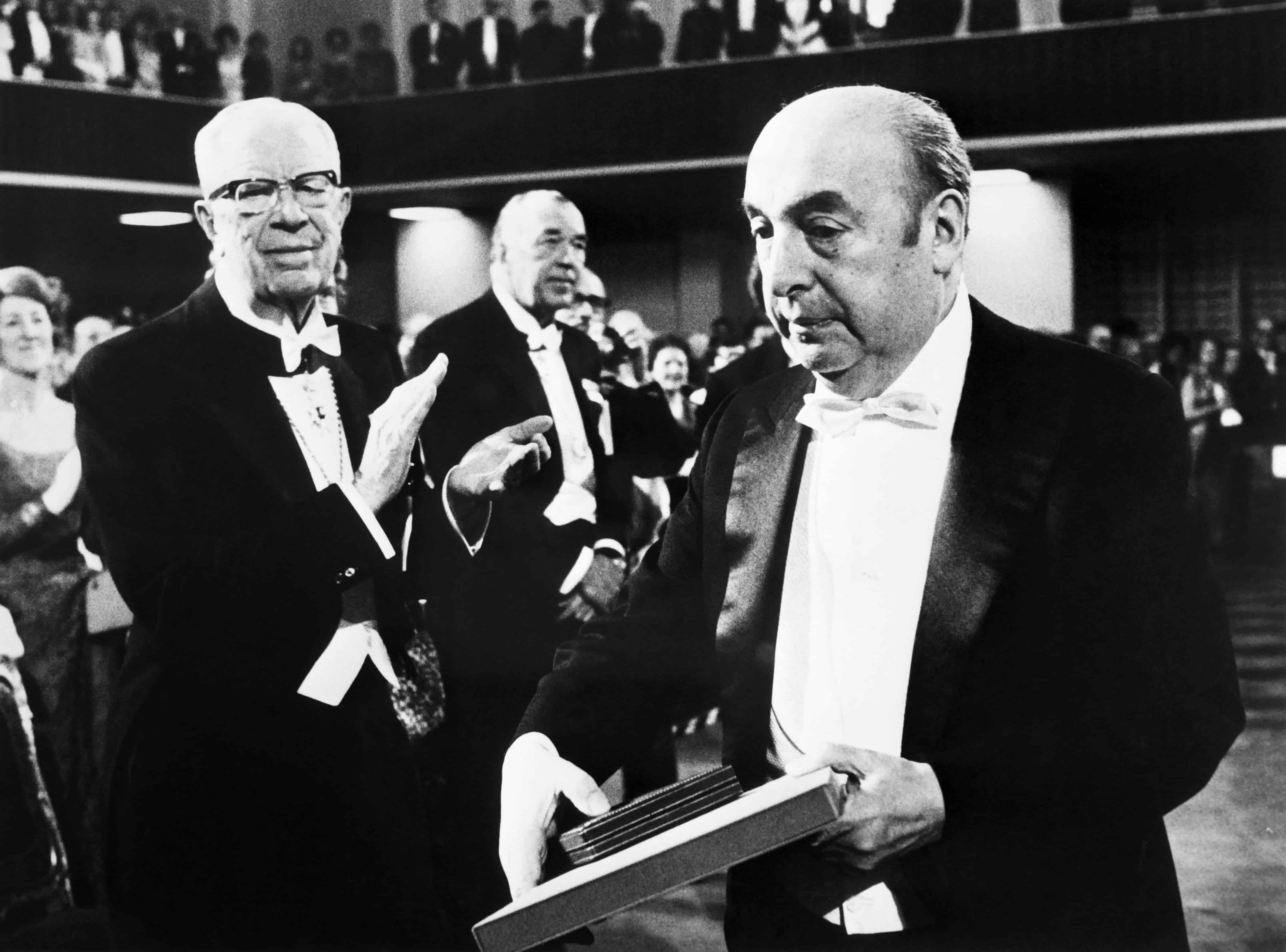ISLA NEGRA, Chile – The remains of Chilean Nobel prize-winning poet Pablo Neruda were exhumed Monday to determine if he died of cancer or was poisoned by the Pinochet dictatorship he strongly opposed.Workers broke open the tomb housing his remains at his last home overlooking the sea at Isla Negra under the supervision of Judge Mario Carroza, lawyers and a dozen forensic experts.
The leftist author, who died 12 days after the 1973 military coup that ousted socialist president Salvador Allende and brought General Augusto Pinochet to power, was long believed to have died of prostate cancer.But judicial authorities in 2011 opened an investigation into four-decade-old claims by Neruda’s driver that he was poisoned by agents of the Pinochet regime.
Police investigators and government forensic experts set up a tent to shield and protect the tomb where the remains of Neruda’s third wife, Matilde Urrutia, are also interred.The poet’s nephew Rodolfo Reyes said workers quickly located remains by a tarnished plaque that bore Neruda’s name.
“It corroborated what I had said: He was buried on the left-hand side facing the sea,” Reyes told AFP. “There was no need to open the casket, they just took it out intact.”Neruda won the 1971 Nobel Prize in Literature and is best known for his love poems and his “Canto General” – an epic poem about South America’s history and its people.
The Chilean courts gave the go-ahead for the probe in June 2011 after a complaint was filed by the Chilean Communist Party, of which Neruda was a member.In addition to the driver’s accusations, the official complaint cites witnesses who say Neruda was healthy up until the day before his death and did not exhibit symptoms consistent with advanced cancer.
The results of the inquiry – not expected for at least three months, judicial sources said– are expected to support or refute the charge made by Neruda’s driver and personal adviser, Manuel Araya, whose claims formed the basis of the complaint.
Araya says Neruda died after receiving what the driver believed was a suspicious injection at Santiago’s Santa María Hospital days after the coup that brought Pinochet to power. Neruda’s death certificate, to which access was obtained, says he died of complications from prostate cancer.
Neruda’s family and the official foundation that administers his work have both accepted the official cause of death, saying in a 2011 statement that there was “no evidence or proof” to suggest foul play. “We simply want to learn the truth, to get to the bottom of the family truth,” Neruda’s nephew said at the grave site. “Neruda’s family wants to know the truth, regardless of whether he died of natural causes or was murdered.”
“It is not easy for us to explain what they are going to do with the remains, but we think it is necessary,” Reyes added. Chile’s medical legal service has assembled a team of archeologists, anthropologists, doctors, toxicologists and representatives of the International Committee of the Red Cross to examine the remains, its director Patricio Bustos said.
“The remains will be transferred to an anthropology laboratory which will conduct radiological, toxicological and anthropological tests to look for signs of toxic substances and of the poet’s disease,” Bustos said on Sunday.
According to Araya, on the afternoon of Sept. 23, 1970, just 12 days after Pinochet came to power, Neruda told his wife and the driver that he had been given an injection in the chest that had made him feel bad.Nearly six hours later, the poet died in the Santiago hospital.
Neruda was supposed to have flown to Mexico the next day to lead the opposition to the coup from exile. The Mexican ambassador to Chile had arranged the flight and a plane was standing by, waiting to take him.
The Chilean judicial system is also investigating the 1982 death of former Chilean President Eduardo Frei (1964-1970), who like Neruda died in the Santa María hospital during the military dictatorship following complications from a routine surgery.






